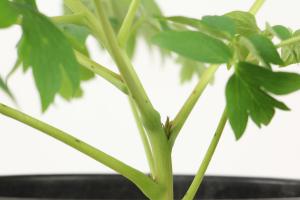When to Plant Fruit Trees in TX
Fruit trees can be a beautiful and delicious addition to any garden or yard, but it's important to plant them at the right time to ensure they thrive. In Texas, the climate can be quite warm, so it's important to know when to plant fruit trees to give them the best chance of success. Here's what you should know.
Timing is Key
The best time to plant fruit trees in Texas is during the dormant season, which is typically from December through to February. During this period, the trees are not actively growing, so transplanting them is less stressful and it gives them time to establish roots in their new location before the growing season begins. In addition, planting during this time will help to prevent the trees from becoming stressed during the hot summer months, which can cause them to drop their fruit prematurely or even die.
Choosing the Right Variety
When choosing fruit trees to plant in Texas, it's important to consider the climate and soil conditions of your specific location. Not all fruit trees are created equal, and some are better suited to different regions of the state than others. For example, peaches, plums, and apricots tend to do well in warmer areas such as the Gulf Coast, while apples and cherries prefer cooler temperatures commonly found in the northern part of the state. It's also important to choose disease-resistant varieties to ensure your trees are as healthy as possible.
Preparing the Soil
Before planting fruit trees, it's important to prepare the soil to create the best environment for growth. Texas soils can be quite alkaline, which can cause problems for fruit trees. To remedy this, it's important to amend the soil with organic matter, such as compost or well-rotted manure, to help balance the pH level. In addition, ensure that the soil is well-draining to prevent water-logged roots, which can lead to root rot.
Planting and Care
When planting fruit trees, it's important to dig a hole that is twice the diameter of the root ball and as deep as the root ball. Place the tree in the hole and backfill with soil, ensuring it is well-compacted. Water the tree well, and top up the soil if it settles. Throughout the growing season, pay close attention to the tree's water needs and ensure it is not getting too much or too little. Fertilize the tree regularly during the growing season, being careful not to over-fertilize, which can burn the roots.
In Conclusion
Planting fruit trees in Texas can be a rewarding experience, but it's important to do so at the right time and with proper care. By following these tips, you'll be on your way to growing your own delicious fruit in no time.

 how many times do yo...
how many times do yo... how many planted tre...
how many planted tre... how many pine trees ...
how many pine trees ... how many pecan trees...
how many pecan trees... how many plants comp...
how many plants comp... how many plants can ...
how many plants can ... how many plants and ...
how many plants and ... how many pepper plan...
how many pepper plan...































